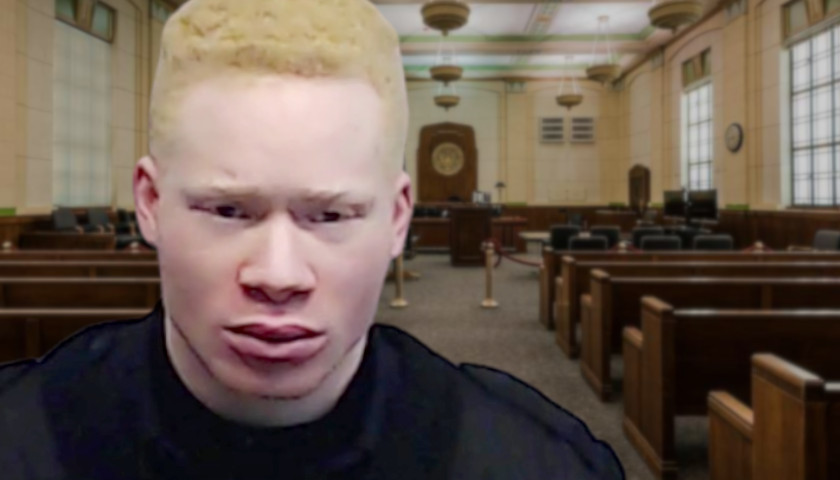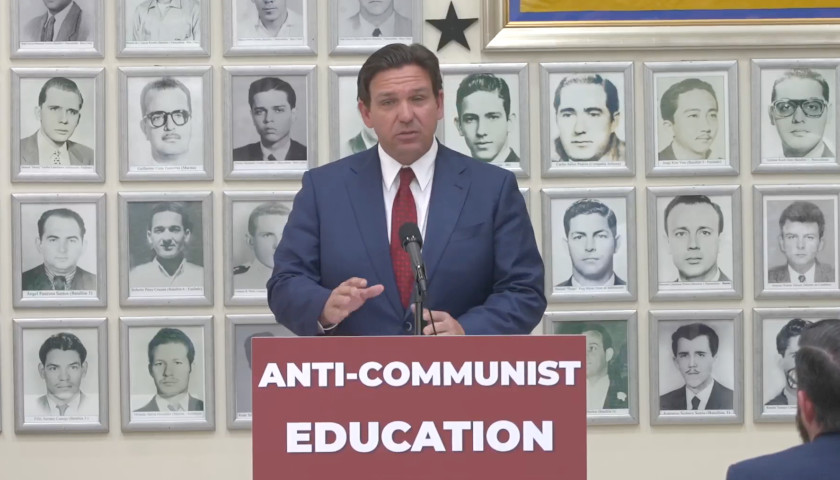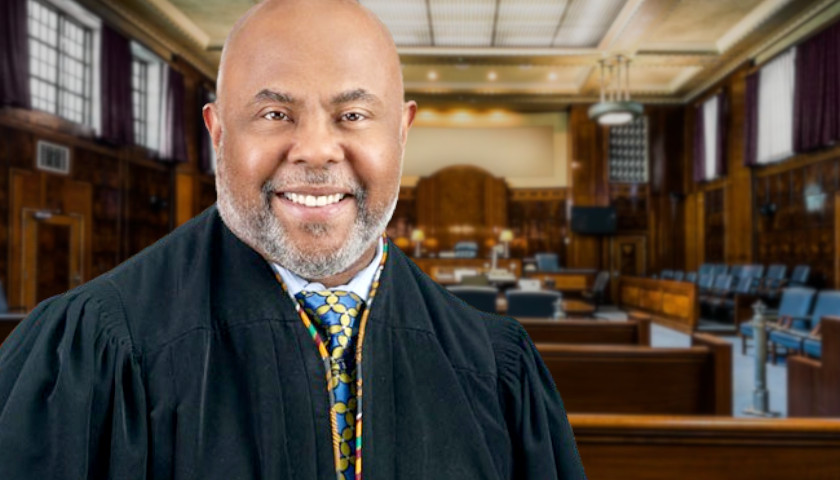Live from Music Row Monday morning on The Tennessee Star Report with Michael Patrick Leahy – broadcast on Nashville’s Talk Radio 98.3 and 1510 WLAC weekdays from 5:00 a.m. to 8:00 a.m. – host Leahy welcomed Tennessee State Representative (R-TN-73), Chris Todd, to the newsmaker line to discuss his upcoming agenda, the residency bill for Tennessee state primary election candidates, and Basic Education Program formula funding.
Leahy: We are joined now on our newsmaker line by our very good friend, State Representative Chris Todd from the Jackson area. Welcome to The Tennessee Star Report, Representative Todd.
Todd: Good morning, Michael. How are you today?
Leahy: Okay. Now let’s see, it’s Monday. I’m guessing you are still in Jackson, where you run a business, and I’m guessing – are you on your way up here to Nashville?
Todd: I actually just left Jackson and I am coming through a construction zone right now.
Leahy: So you’re driving in your car and maximizing your time by getting on the phone with us right now.
Todd: Hands-free, for sure.
Leahy: (Chuckles) Yes, of course. Hands-free, because we always follow the law, right?
Todd: Absolutely.
Leahy: Tell us what’s going to be happening on Capitol Hill today – what bills that you’re carrying, what’s their status, and what’s going to be happening up there today?
Todd: I have Finance Ways and Means budget hearings that will go about half a day. And then I have some office meetings about other bills that are going to be before committees that I’m on this week.
That will happen sometime this afternoon. And I’m just preparing for presenting bills in committee this week. I have several and one on the floor tonight that I’m carrying for the Speaker.
And this is more of a clarification cleanup bill dealing with the second floor of the Capitol, where the legislature resides. So it’s not a real big deal, but it is technical things we need to clean up.
But one that I’m excited about is a bill that I’m carrying that restricts foreign companies, foreign corporations, foreign nationals, and foreign governments from interfering with local elections like referendums, and even like our ballot initiative this fall with the right to work.
We’ve got a few constitutional amendments on the list for November. And this would prevent any foreign entity from interfering with those elections – financing or anything else.
Leahy: I like that one. Is there any evidence that there has been foreign intervention in some of these local elections that you’re talking about, in the past?
Todd: Not in Tennessee that I have heard of. I thought there might be some rumors come out of the woodwork when I filed this bill, but I haven’t heard of any. But other states have actually seen it, and I don’t remember which state it was (unintelligible audio) …
… a Canadian company trying to influence a local election referendum on something to do, I think it was mine. I heard about that and heard some concerns over that type of thing.
And that’s what inspired me to get a draft bill together from an organization that I belong to called the American Legislative Exchange Council and filed that at our legal department, Tennessee Code. And so far, it hasn’t met any resistance whatsoever.
Leahy: Now over the weekend, the Tennessee 5th Congressional candidate whose recent arrival – carpetbagger by the name of Morgan Ortagus, who registered to vote here about three months ago, just recently arrived here, wrote an op-ed in The Tennesseean, and I don’t know if you saw it, but basically, she said she opposes what the Tennessee General Assembly is doing in a residency bill. That didn’t go over very well with most state representatives that I’ve talked to of late – particularly putting the bill, the op-ed, in The Tennessean of all places, because nothing says “conservative Republican Tennessee readers” like The Tennesseean. (Todd laughs)
Leahy: Yeah, it is kind of funny, isn’t it?
Todd: It’s hilarious!
Leahy: It is hilarious. Here’s what I’m hearing. Tell me what you’re hearing. The bill that would establish a three-year residency requirement to run for a primary ballot passed the state Senate 31 to one, and now it’s going to be before the Tennessee House for a floor vote later today.
I’m hearing that the sponsor, State Representative David Wright, intends to conform it on the House to the Senate version, which would go into effect immediately. What’s your take on what will happen in that vote tonight?
Todd: I would imagine that would pass. I’ve not heard a great deal of discussion in the hallways about this one. I asked Representative Wright about this on Thursday. We were both in Calendar Rules getting prepared for our bills to run tonight, and I had heard bits and pieces about it, but I had not followed this bill just real closely yet as it went through committee. I wasn’t on any committee that it came before, so I just haven’t been intimate with it, but indicated that he seemed to have the support for it. So hopefully he’s worked that and knows what his vote count is.
Leahy: So I gather from that that you’re leaning towards voting in favor of this bill?
Todd: I think I am. I’ve not heard a lot of arguments on either side of this. I certainly understand the nature of the bill and … so, I think I would be leaning towards support, but I certainly want to hear a little bit more about it.
Leahy: So just for the record, I think it’s a great bill. And I think … the problem we see here in Tennessee is because it’s such a great state, we all of a sudden have all these carpetbaggers that want to come in and tell us how to run the state and want to represent us in Congress.
My sense is if this bill isn’t passed, we are going to see, even in this election cycle, with 25 more days until the filing deadline, we could well see more carpetbaggers who want to come in and tell us how to run the state. I personally favor this legislation. That’s my view on it.
Todd: And I think the majority of Tennesseans that have been here their whole lives probably agree with that. And that’s one reason we have a need for this. If this is not answered anywhere in our constitutional law, then I think it needs to be clarified, and have someone that at least understands the lifestyle here and the personality of Tennessee.
I think that makes a lot of sense to most people. Certainly, as I said, I’m leaning towards that and haven’t found an argument yet against it that I can identify with my constituents.
Leahy: We’ll watch that with great interest. The other thing, just to get your reaction to it, what’s the status of this Basic Education Program bill? The new funding bill? There are still details that I haven’t heard about. Do you have the details on it, and what’s your take on it?
Todd: The only details I really have are related to just the basic premise of this formula and it’s primarily student-based, which I really like the concept of that. But that was in the details and we’re gradually getting through those details now.
I’m not on an education committee, so I’ve only seen a rough schedule so far. But if a student in XYZ school in any given county has certain disabilities, for example, there are extra monies that go with that student wherever they go to school in the public school system.
For example, if they’re going to, let’s say, Scotts Hill School and they transfer to another school in that district or in that school district then that money follows the child so that they get the services and the specific things that they need for the most positive outcome in their education.
And if they’re in a county that meets certain criteria, that’s a very rural county and doesn’t have the tax base of, let’s say, a Davidson County or Madison County, then there’s an extra bump there as well for a student.
And so if you look at a chart and you can take little Johnny and then you follow him all the way across, everything he qualifies for in these categories usually will pull down more money for that specific student.
And that’s accountability built in to make sure that that student is getting those services and those needs are being met. So from a framework, I like this concept.
It’s fairly easy to understand once we have certain questions answered. I believe it all kind of comes together. It may be tweaked a little bit to go through the committee system.
Leahy: So generally you favor it. State Representative Chris Todd, thanks so much for calling in. A busy day as you’re driving from Jackson to the Capitol. And before the session’s out, come on in the studio again, if you wouldn’t mind.
Todd: I would love to do that, sir. Thank you for that.
– – –
Tune in weekdays from 5:00 – 8:00 a.m. to the Tennessee Star Report with Michael Patrick Leahy on Talk Radio 98.3 FM WLAC 1510. Listen online at iHeart Radio.








